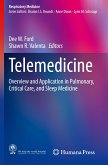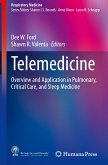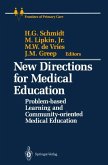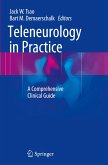Behavioral and technological innovation has a special place in the future of graduate and medical education, both for students and for educators. A new multi-media pedagogy offers innovative techniques and technologies, drawing widely upon behavioral science.
The psychology of multi-media education maximizes learning by involving many different sensory modalities. Although multi-media has long meant use of film and other electronic modality adjuncts like Powerpoint, newer technologies expand these horizons further. Now multi-media pedagogy means not only newer technologies, but also newer, and different education techniques. This book describes psychology innovation currently making educational settings competent and competitive.
Student choice rules in education today. The technologically driven environment produces students whose preference is incumbent on electronic research means. Besides using these tools themselves, students thirst for multi-media pedagogy in the classroom online and on campus. It is therefore teachers who close the digital divide between generations in order to educate effectively. Approaches using new technologies and techniques have proven successful internationally with diverse audiences.
The psychology of multi-media education maximizes learning by involving many different sensory modalities. Although multi-media has long meant use of film and other electronic modality adjuncts like Powerpoint, newer technologies expand these horizons further. Now multi-media pedagogy means not only newer technologies, but also newer, and different education techniques. This book describes psychology innovation currently making educational settings competent and competitive.
Student choice rules in education today. The technologically driven environment produces students whose preference is incumbent on electronic research means. Besides using these tools themselves, students thirst for multi-media pedagogy in the classroom online and on campus. It is therefore teachers who close the digital divide between generations in order to educate effectively. Approaches using new technologies and techniques have proven successful internationally with diverse audiences.
From the reviews:
"If you train behavior change scientists or clinical practitioners this book has ideas you can use. Educational technology can be especially valuable for teaching in the complex intersection of psychology and health and this slim volume offers many heuristic examples.
Several chapters impressed me. Miguel Sabido's method which "applies behavioral change theory through creative mass media outlets" and results in "entertainment with proven social benefit" (p. 7). Literally hundreds of television programs around the world have benefitted millions with better health.
Gregerson's lists (pp. 10-13) of books on the issues and uses of cinema in medical humanities, self and graduate education, and especially psychology is an invaluable.
Wallin offers many hints to make our internet searching more productive. By including the terms and formats she offers the searcher becomes the finder: time saving, homing in, and best, finding the highest quality resources. The ways to evaluate the quality of a website (do not use is visual appeal) are especially valuable in our state of information overload. She also explains how to use specialized tools to organize what we find.
Two fine chapters address first, telemedicine competencies helpfully separating technology competencies from clinical competencies and from outreach competencies, and then conceptualizing the educators' roles in maximizing patient's self care, incorporating best practices, and then evaluating the outcomes.
The volume is capped with a chapter on ethical issues in media psychology with a dozen short examples of the kinds of errors and omissions we might make in dealing with the media.
All in all, a fine set of chapters introducing important topics and offering valuable resources." (Ed Zuckerman, Ph.D., June 2011)
"Gregerson ... provides seven articles, a foreword, and a preface that cover examples of the roleof technology in education, health, and mental health. ... presents many visual examples from websites of how consumers should evaluate the quality of mental health and psychology sites. ... explains how to use Google and other search engines, how to filter by domain, and how to use sidebars, 'wedgewords,' 'feeds,' and Google Scholar. ... is invaluable for undergraduate professors to inform students ... on research uses of the Internet." (Dolores McCarthy, PsycCRITIQUES, Vol. 56 (43), October, 2011)
"If you train behavior change scientists or clinical practitioners this book has ideas you can use. Educational technology can be especially valuable for teaching in the complex intersection of psychology and health and this slim volume offers many heuristic examples.
Several chapters impressed me. Miguel Sabido's method which "applies behavioral change theory through creative mass media outlets" and results in "entertainment with proven social benefit" (p. 7). Literally hundreds of television programs around the world have benefitted millions with better health.
Gregerson's lists (pp. 10-13) of books on the issues and uses of cinema in medical humanities, self and graduate education, and especially psychology is an invaluable.
Wallin offers many hints to make our internet searching more productive. By including the terms and formats she offers the searcher becomes the finder: time saving, homing in, and best, finding the highest quality resources. The ways to evaluate the quality of a website (do not use is visual appeal) are especially valuable in our state of information overload. She also explains how to use specialized tools to organize what we find.
Two fine chapters address first, telemedicine competencies helpfully separating technology competencies from clinical competencies and from outreach competencies, and then conceptualizing the educators' roles in maximizing patient's self care, incorporating best practices, and then evaluating the outcomes.
The volume is capped with a chapter on ethical issues in media psychology with a dozen short examples of the kinds of errors and omissions we might make in dealing with the media.
All in all, a fine set of chapters introducing important topics and offering valuable resources." (Ed Zuckerman, Ph.D., June 2011)
"Gregerson ... provides seven articles, a foreword, and a preface that cover examples of the roleof technology in education, health, and mental health. ... presents many visual examples from websites of how consumers should evaluate the quality of mental health and psychology sites. ... explains how to use Google and other search engines, how to filter by domain, and how to use sidebars, 'wedgewords,' 'feeds,' and Google Scholar. ... is invaluable for undergraduate professors to inform students ... on research uses of the Internet." (Dolores McCarthy, PsycCRITIQUES, Vol. 56 (43), October, 2011)








